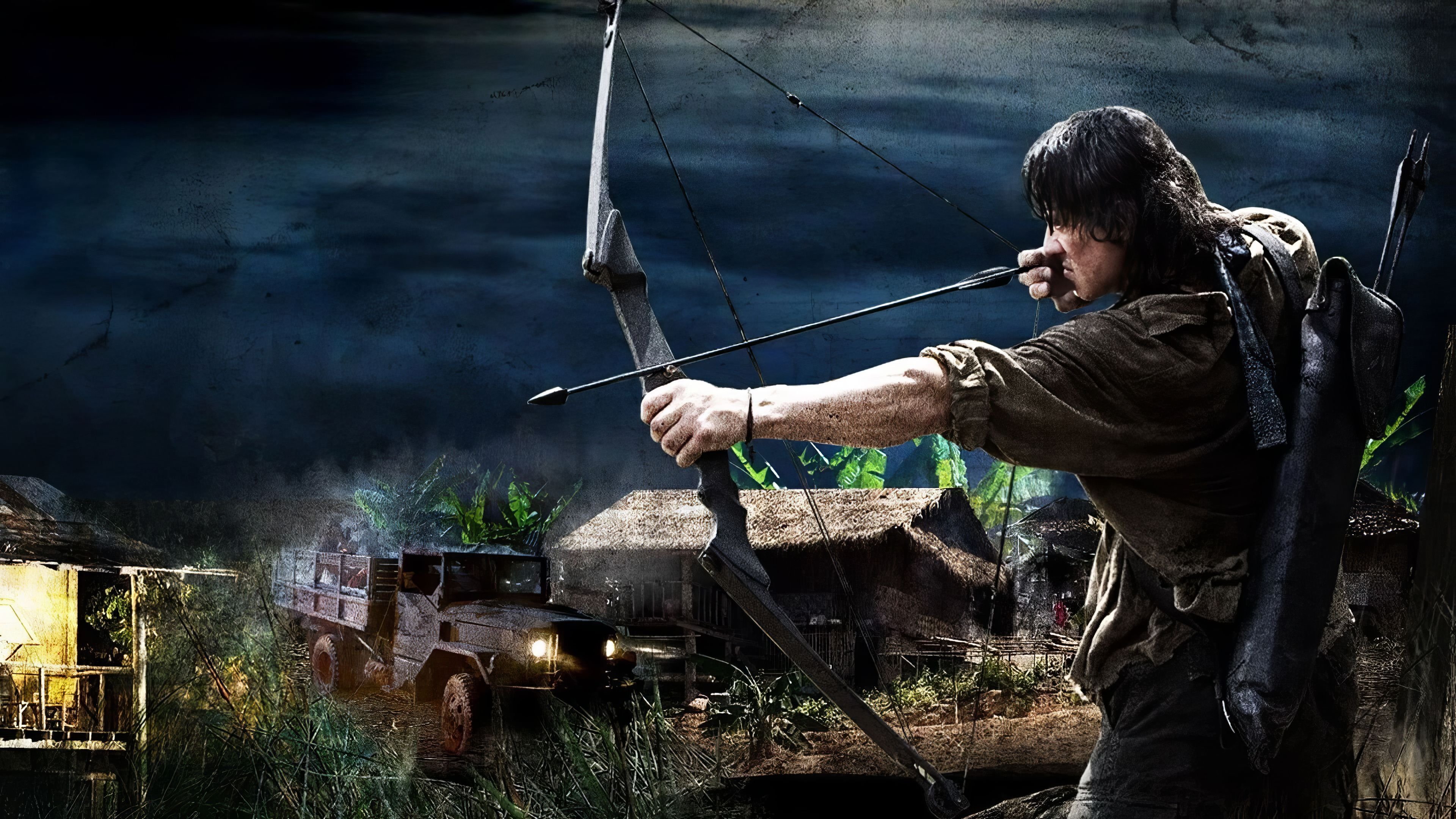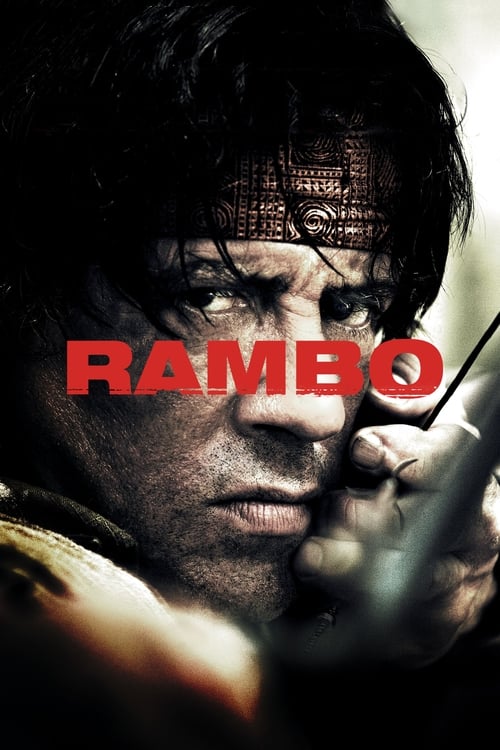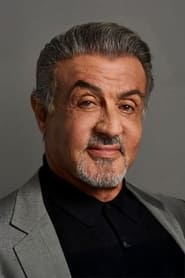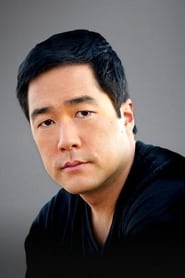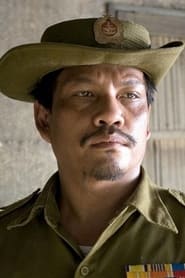Cast
View AllSylvester Stallone
as John Rambo
Julie Benz
as Sarah
Matthew Marsden
as School Boy
Graham McTavish
as Lewis
Reynaldo Gallegos
as Diaz
Tim Kang
as En-Joo
Jake La Botz
as Reese
Maung Maung Khin
as Tint
Paul Schulze
as Michael Burnett
Cameron Pearson
as Jeff
Thomas Peterson
as Dentist
Tony Skarberg
as Videographer
James With
as Preacher
Kasikorn Niyompattana
as Snake Hunter #2
Shaliew 'Lek' Bamrungbun
as Snake Hunter #1
Crew
Director
- Sylvester Stallone
Producer
- Avi Lerner
- John Thompson
- Kevin King Templeton
Reviews
JPV852
Kick-ass action all around and although the story is on the basic side and has minimal character development for Rambo himself, just a bloody, albeit too much of it CGI'd, entertaining especially an action-fest finale. Amazing, especially being the fourth entry into the series.
Aug 28, 2019
Wuchak
_**Intense with more depth than you might think**_
John Rambo (Sylvester Stallone) is alone, bitter and living hand-to-mouth in Thailand when a group of Christian missionaries enlist him to take them into Burma (aka Myanmar) to aid a village. Rambo discourages them in light of the political instability, which includes persecutions and mass slayings, but they insist. Weeks later he learns that the missionaries are missing so he goes back with a group of mercenaries.
"Rambo" (2008) is the fourth installment in the franchise after "First Blood" (1982), "Rambo: First Blood Part II" (1985) and "Rambo III" (1988). I'm a huge fan of the first one, which I think is an action/adventure masterpiece, but the next two films are too comic-booky and the characters are cardboard, although Stallone never looked better and the locations are fabulous.
This third sequel makes up for that because it's not comic booky at all and there's quite a bit of depth, albeit not much in dialogue form. It combines elements of "Apocalypse Now," "The Killing Fields" & the first two Rambo films and is grim & intense from beginning to end, not to mention it's one of the most violent films ever made. The picture powerfully illustrates the best and worst in humanity. The Christian missionaries are willing to risk everything to help the villagers, whereas the Myanmar militarists revel in slaughtering scores of unarmed people for "fun"; they're also shown abusing/raping women and boys. Obviously they've given themselves wholly over to the darkside of their natures. Such reprobates are only worthy of one thing: Utter annihilation.
Several important themes are addressed in the picture besides the main one:
* BITTERNESS/DESPAIR AND DELIVERANCE. The beginning of the film shows Rambo in a state of utter bitterness: He's just existing. He has no friends. He doesn't talk much and, when he does, it's few words laced with expletives. The male leader of the missionaries is completely unable to talk him into helping them. Two Biblical proverbs state "a gentle answer turns away wrath" and "a gentle tongue can break a bone." The female missionary (Julie Benz) knows this and skillfully talks John into helping them. Yet there's more going on here. This woman with a heart of gold is Rambo's "golden connection" out of the rut of bitterness. Despite his gruff exterior, she sees something in him, something in his eyes – a good heart, even greatness, a genuine glimmer, however faint. Is Rambo helping the missionaries or is she the one helping him? John instinctively realizes the rope she's throwing him and takes hold of it. There's nothing sensual about their relationship, despite her attractiveness; it's solely spiritual. She stirs in him the hope and faith he's been longing for.
* VIOLENCE IS NOT ALWAYS NECESSARY. Although this is a very violent film it skillfully shows when pacifism _is_ appropriate. Note the incident on Rambo's riverboat when the lead mercenary continually insults John and tries to provoke him into a fight. Rambo just ignores him, not even saying a word. In other words, he refuses to allow someone to victimize him and draw him into a conflict that has no positive purpose. It takes true strength to do this and Rambo has this strength. Indeed, John treats the guy as if he's a bothersome gnat. What do you do when a gnat bothers you? Do you break out a machine gun or merely ignore it? This is the "turn the cheek" principle.
* TOTAL PACIFISM DOES NOT WORK. The New Testament does not support the idea of absolute pacifism, but rather limited pacifism (only resorting to violence when justified). For instance, Christ’s ministry team had a treasury box with loads of money and some of his workers carried swords for protection from thieves & murderers. Also, Romans 13 clearly states that the righteous laws of human governments are God-ordained for the purpose of punishing criminals, including the right to execute when appropriate. The vast majority of sane Christians realize this, but there are a few extremists who refuse to be BALANCED with the Scriptures on this topic and insist that conflict, and especially armed conflict, is never appropriate. The lead male missionary represents such a person, but perhaps he'll learn the error of his ways. The simple fact is: Some people are so degenerate and evil that execution is the only just ultimate reaction (notice I said "ultimate").
* RAMBO’S SPIRITUAL REBIRTH. The first two sequels show Rambo searching for truth and flirting with religion and spirituality. In the second film he gets a Buddhist necklace off the Asian woman he befriends and at the beginning of "Rambo III" he is shown living & working at a Buddhist temple helping the priests; later, he meets and wins the hearts of moderate Islamic villagers and gives his necklace to a Muslim boy who helped him. In this movie the female missionary is key to John's positive transformation; at one point she gently asks him whether or not he has any family in the USA. He mumbles that he might have a father, he wasn't sure, and didn't seem to care. Shortly later she gives him a cross necklace for helping them (he wouldn't take money). Anyway, the end of the film shows Rambo walking to his family ranch in southern Arizona. Obviously John had a positive spiritual metamorphosis in the story that leads to a decade of peace & love before the next film, “Last Blood” (2019).
"Rambo" was written & directed by Stallone and shot in Thailand (and Arizona). It’s short & sweet at 1 hour, 32 minutes.
Grade: A
May 1, 2020
CinemaSerf
Sylvester Stallone is in his element as the eponymous Vietnam veteran who has retreated to a rural community where he acts as a tourist guide for visitors on his ramshackle old PT boat. When he is approached by some human rights folks who want to charter his boat to seek out some missing Christian Aid missionaries up-river in strife-ridden Burma, he eventually acquiesces and they are soon in a world of pain at the hands of the brutally sadistic "Maj. Tint" (Muang Muang Khin). It's an end-to-end action movie, pyrotechnics galore with some seriously graphic - thereby authentic - scenes of violence that have their roots in a plausible storyline based on well documented abuses from South East Asia in the 1970s. The dialogue is a bit gung-ho, but this is about characterisations and Stallone, Graham McTavish ("Lewis") and Julie Benz ("Sarah") help create a suspenseful drama that is light on message and heavy on delivery...
Mar 27, 2022
Thematic Analysis
This high-octane Action/Thriller/War film balances spectacular sequences with character-driven moments. Unlike many films in the genre, Rambo distinguishes itself through a unique visual style and creative action choreography.
Director Sylvester Stallone brings their distinctive visual style to this film, continuing their exploration of themes seen in their previous works while adding new elements. Their approach to pacing and visual storytelling creates a viewing experience that rewards close attention.
Released in 2008, the film exists within a cultural context that continues to evolve with our understanding of its themes. Its reception demonstrates the diverse reactions to its artistic choices and its place in cinema history.
Did You Know?
- The production of Rambo took approximately 3 months from pre-production to final cut.
- With a budget of $50.0 million, the film proved to be a financial success, earning back its investment and more.
- The final cut of the film runs for 92 minutes, though the director's initial assembly was reportedly 118 minutes long.
- The musical score contains over 49 unique compositions.
- The film contains approximately 1240 individual shots.
- The director insisted on using practical effects whenever possible, reserving CGI for only the most necessary scenes.
Historical Context
- In 2008, when this film is released:
- The September 11 attacks changed global security and politics.
- Social media platforms were beginning to transform communication.
- Digital filmmaking technologies were transforming production processes and creating new opportunities.
How This Film Stands Out
While Rambo shares thematic elements with other films in its genre, it distinguishes itself through its unique approach to storytelling, visual style, and character development.
Unlike The Rage: Carrie 2, which focuses more on action than character development, Rambo offers a fresh perspective through its innovative visual language and narrative structure.
While films like Ong Bak and Clear and Present Danger explore similar territory, Rambo stands apart through its deeper exploration of its central themes and more complex characterization.
This film's unique contribution to cinema lies in its thoughtful balance of entertainment value and thematic depth, making it a valuable addition to its genre.
Details
- Release Date: January 24, 2008
- Runtime: 1h 32m
- Budget: $50,000,000
- Revenue: $113,200,000
Where to Watch



